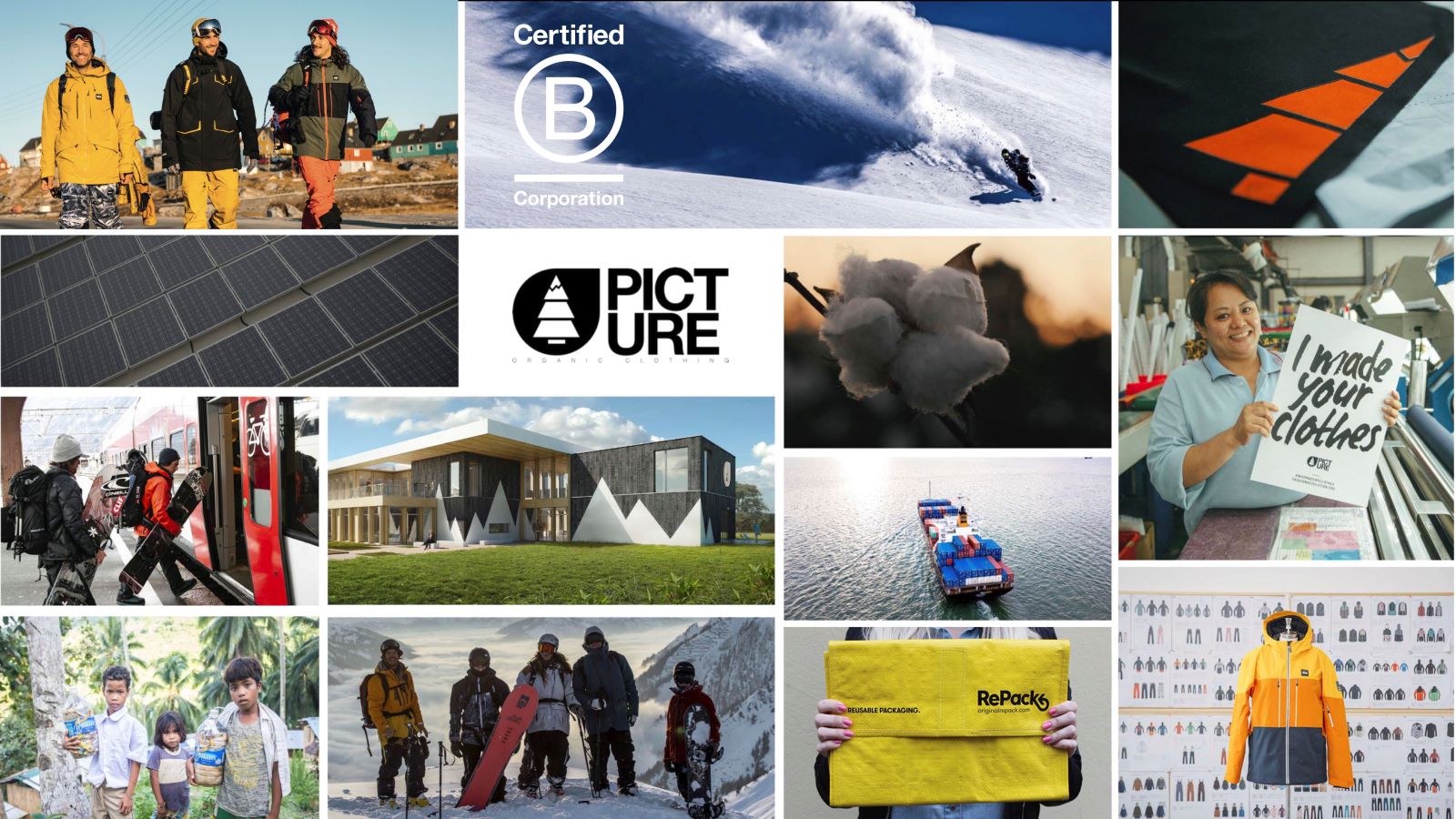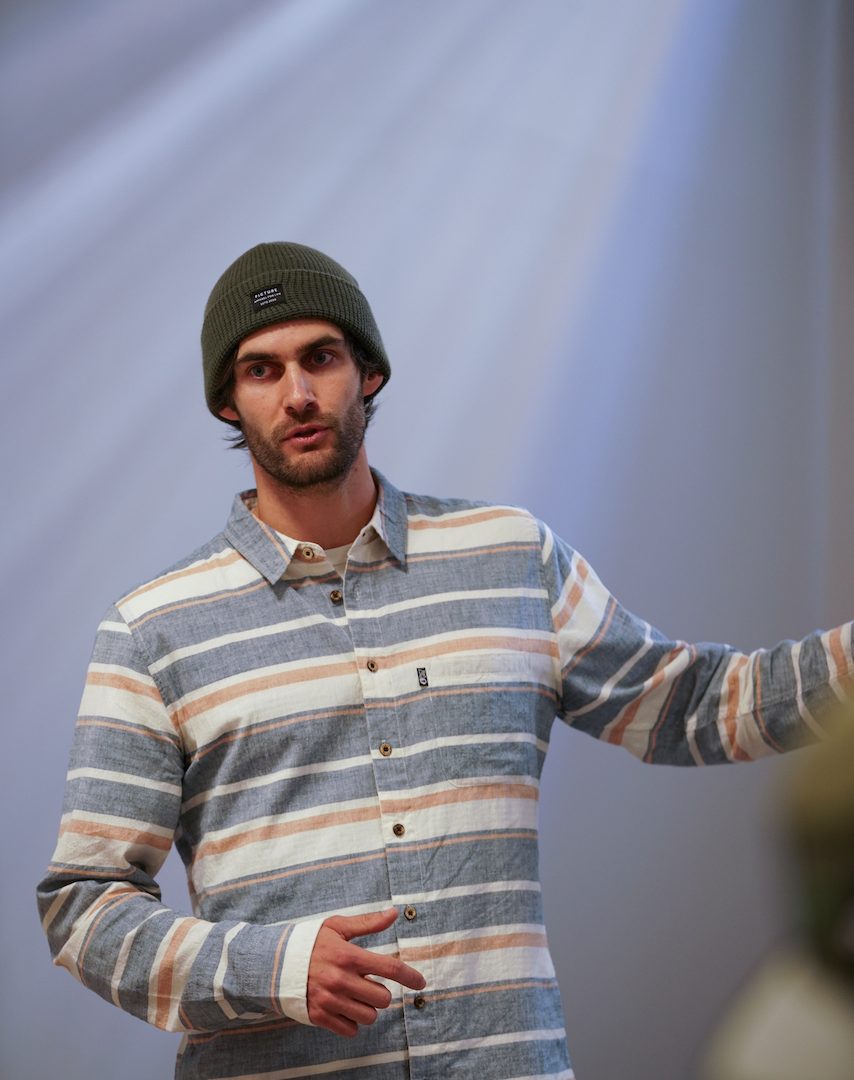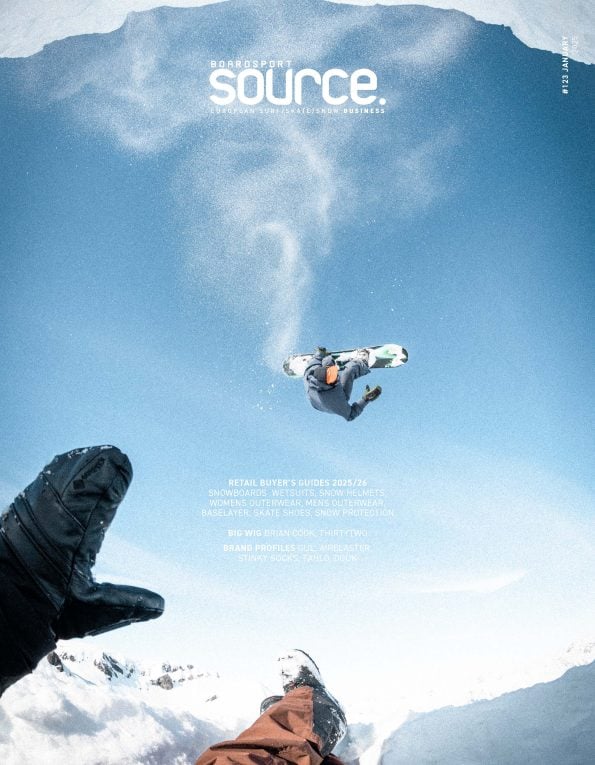
Florian Palluel Talks Importance Of B Corp Certification At Picture
Boardsport SOURCE caught up with Florian Palluel, sustainability and transparency manager at Picture, to talk about their recent B Corp certification – a process which took around 8 months to achieve.

Florian Palluel, Pictue’s sustainability and transparency manager
Please can you tell us what B Corp certification is?
Using business as a force for good- this is the perfect way to define B Corp. Created in 2006, B Corp certifies companies that integrate social, societal, and environmental objectives into their mission statement, their business model, their human resources, and their products and/or services. B Corp certified companies are not looking to be the best company in the world, but rather they strive to be the best company for the planet. In just over 10 years, B Corp has set the standard. For sustainable and responsible companies, B Corp certification is currently the most stringent and difficult certification to obtain. B Corp is also the model certification label that many public and international institutions look for when working with companies.
Why was it important for Picture to attain it?
Beyond marketing and the product and/or service offering, how can a company assess its overall commitment, and prove that it has implemented a truly sustainable approach to business?
We asked ourselves this question, and B Corp certification provided the answers we were looking for. A certification that says, “Ok this entire business is on a good path; they are performing really well, and, they could be even better”.
What benefits does the certification bring to your business?
For us, B Corp certification reinforces our credibility, acknowledging and rewarding the efforts Picture has made from the beginning, in 2008. However, it’s not the end of the road! The extremely high standards and transparency of scores certified companies received has allowed us to compare and define those areas where we need to improve. We view certification as validation of what we have already implemented as well as a fantastic way to identify the areas of improvement, providing us with a great roadmap for future actions and programs
Please talk to us about the process you had to go through for the B Corp certification.
The certification is directly linked to the Sustainable Development Goals written by the United Nations. The questionnaire (approximately 200 questions) is open source and available on the internet so that companies can easily perform their own assessment. The assessment scrutinises every aspect of the company’s performance with regard to the environment, workers, governance, communities, and customers. Each question attributes a certain number of points. The exactness required and the wide range of topics covered forces a company to bring its entire staff together to gather the necessary information.
80,000 companies from all over the world have completed the online assessment. For the time being, average score is only 50.9 points.
If a company scores more than 80 points after performing a self-assessment, it can apply to undergo an official audit. B Lab, the non-profit organisation behind the B Corp label, manages this long and demanding process. After the audit, if a company’s final score exceeds 80 points, it receives certification. Our final score after the audit: 85.4 points.
At Picture, it’s been 6 months’ work on our own, and then a 2-months audit process.
Once a company receives certification, nothing is set in stone. It has three years to implement new programs and to improve before undergoing a second official assessment. The requirements to maintain B Corp certification become more stringent over time. In the end, for us, the continuous improvement process proves more motivating than certification itself.
Where do you see room for improvement, internally and externally, within the industry?
For example, at Picture, our environmental score is relatively high thanks to the fact that our entire range of products is made with organic, recycled, certified, and toxic-free materials. However, we clearly lack data and a full assessment for our true carbon footprint, as well as how much water and energy we consume. The B Corp assessment highlighted these deficiencies.
This is now one of our high-priority projects, and will focus on three key elements:
-Conducting a new carbon footprint assessment (our last one was in 2012)
-Reducing our impact by improving our energy efficiency, and by starting the energy transition process (product manufacturing, transportation, stores)
-Achieving carbon neutrality by capturing CO2 and by compensating for any remaining emissions.
In the end, this coincides with our goal of wiping out all use of fossil fuels (oil, coal, natural gas) in every aspect of our company’s business. Bringing our partners and other stakeholders on board will help a great deal in the fight against climate change. As you can see, it is a global company commitment that goes way beyond products.
How are you educating retailers and customers about your B Corp certification?
The great thing about being a B Corporation certified company, is that it’s not your average “boring” certification. B Corp provides a lot of content and communication checklist. Companies are really proud to announce their certification. While still relatively unknown known in France, enthusiasm for B Corp certification has grown exponentially among companies in North America. Every single American retailer knows B Corp, so this is great for us in this market. So far, we’ve communicated both in B2B and B2C and we will continue to spread the message, especially at ISPO Munich and Outdoor Retailer.




